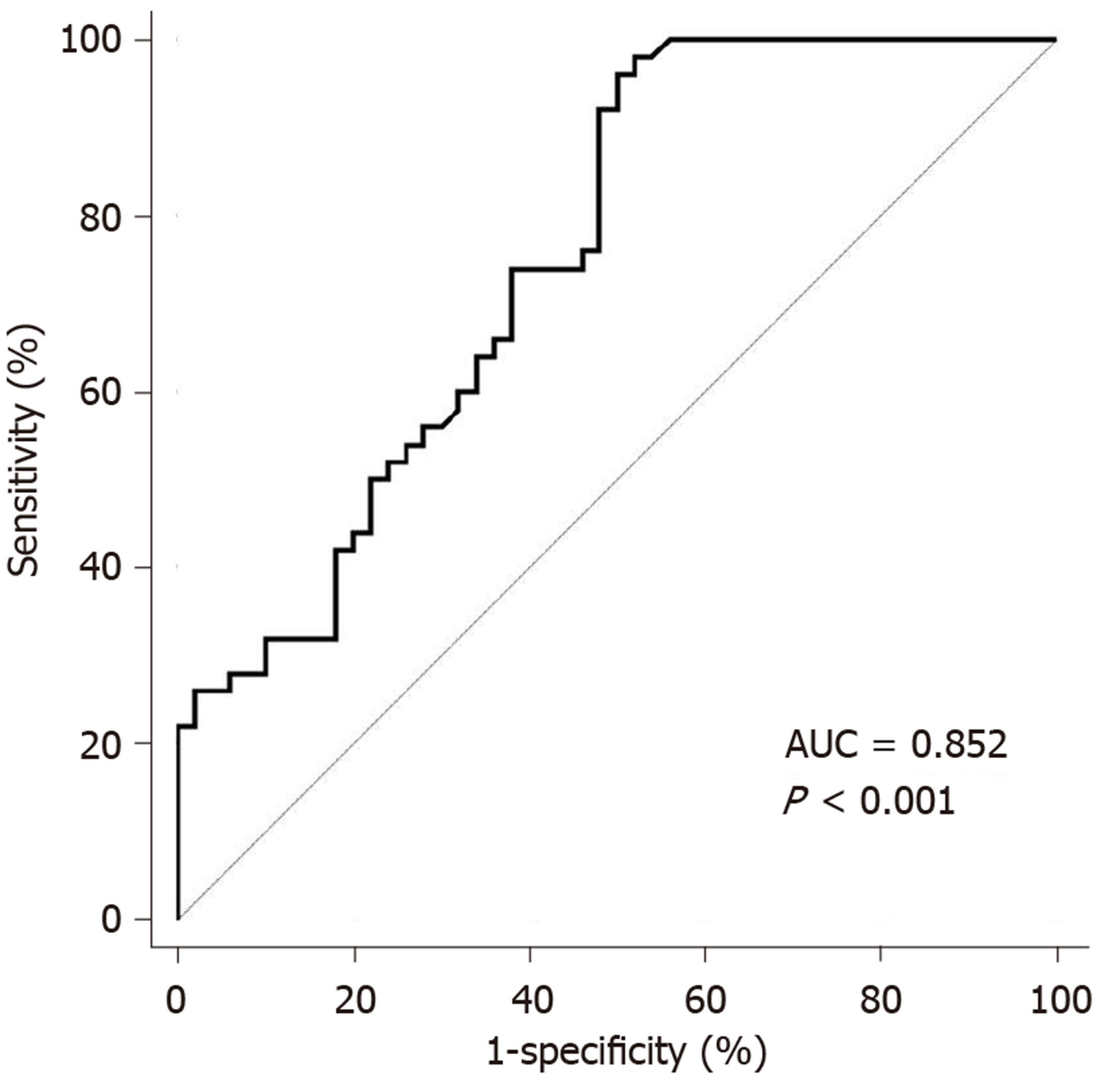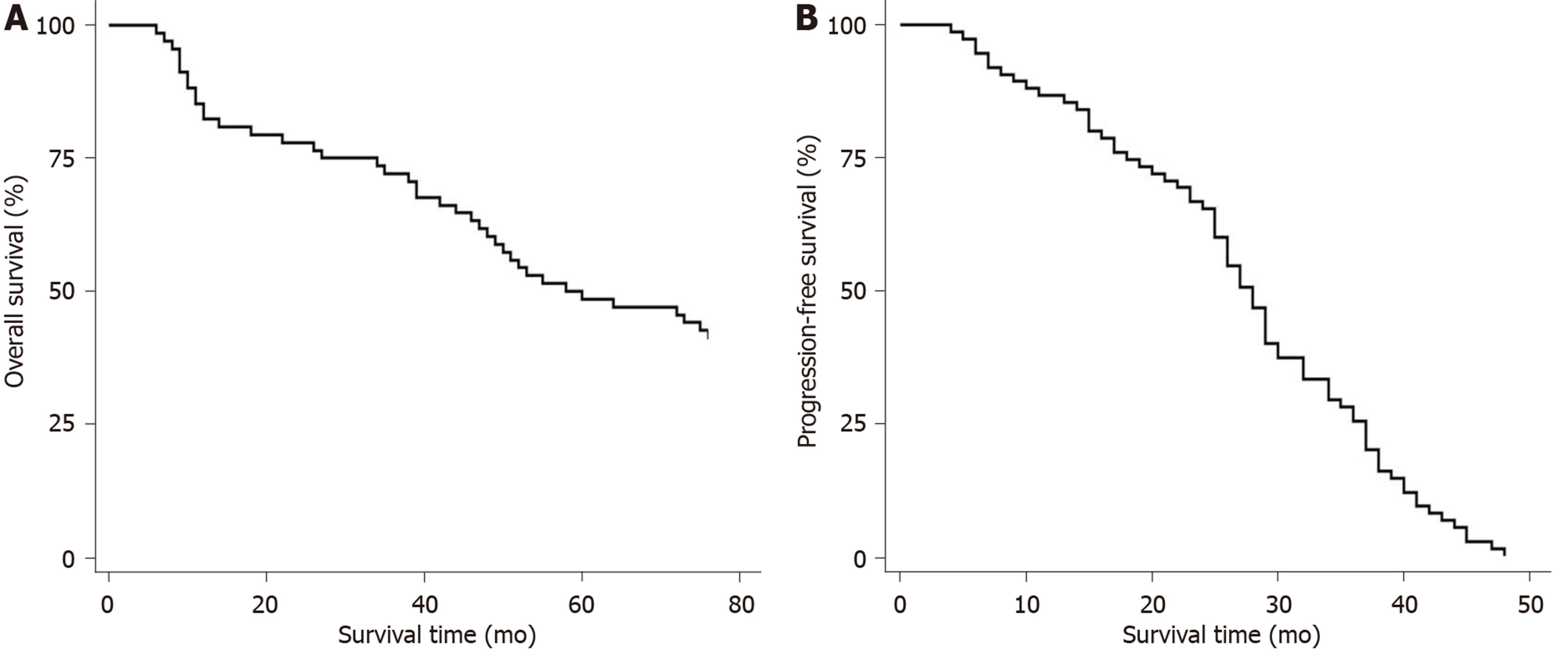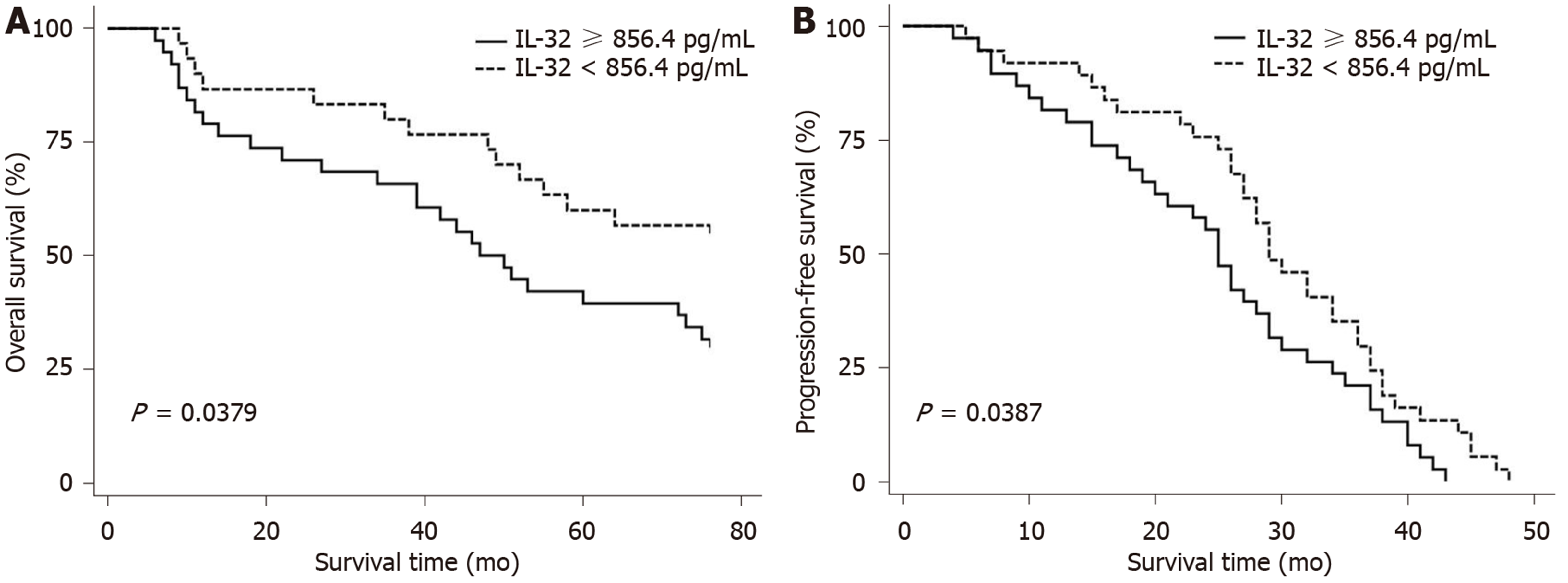©The Author(s) 2019.
World J Clin Cases. Dec 26, 2019; 7(24): 4234-4244
Published online Dec 26, 2019. doi: 10.12998/wjcc.v7.i24.4234
Published online Dec 26, 2019. doi: 10.12998/wjcc.v7.i24.4234
Figure 1 Receiver operating characteristic curve analysis of interleukin-32 in evaluating patient survival status.
AUC: Area under curve.
Figure 2 Kaplan–Meier analyses of progression-free survival and overall survival in patients with multiple myeloma.
A: Overall survival of patients with multiple myeloma; B: Progression-free survival (PFS) of patients with multiple myeloma. The PFS rates at 2 and 3 years were 65.3% and 25.2%, respectively.
Figure 3 Progression-free survival and overall survival in patients with different interleukin-32 levels.
Patients with interleukin-32 (IL-32) levels ≥ 856.4 pg/mL vs patients with IL-32 levels < 856.4 pg/mL. A: Overall survival (OS) of patients with multiple myeloma according to IL-32 level. The 3-year OS rate was 65.8% in patients with IL-32 ≥ 856.4 pg/mL and 80% in patients with IL-32 < 856.4 pg/mL, the difference was statistically significant (P = 0.024); B: The progression-free survival in patients with IL-32 ≥ 856.4 pg/mL and IL-32 < 856.4 pg/mL. The median progression-free survival time of patients with IL-32 ≥ 856.4 pg/mL and IL-32 < 856.4 pg/mL was 25 (95%CI: 20.00-29.00) and 29 (95%CI: 27.00-36.00) mo, respectively (P = 0.045). P values were based on the log-rank test. IL-32: interleukin-32.
- Citation: Wang G, Ning FY, Wang JH, Yan HM, Kong HW, Zhang YT, Shen Q. Expression of interleukin-32 in bone marrow of patients with myeloma and its prognostic significance. World J Clin Cases 2019; 7(24): 4234-4244
- URL: https://www.wjgnet.com/2307-8960/full/v7/i24/4234.htm
- DOI: https://dx.doi.org/10.12998/wjcc.v7.i24.4234















